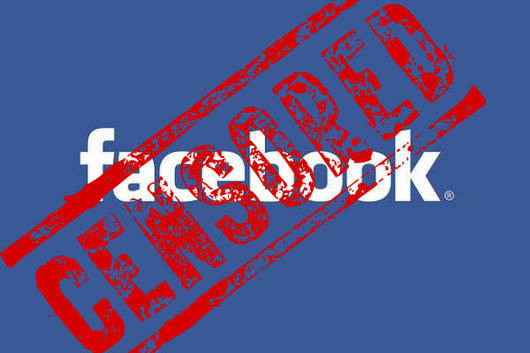After there emerged a massive fuss about numerous insensitive “joke” pages created on Facebook, the company has gave up and deleted groups that make light of rape.

Originally, the social network refused to remove these pages, saying that the poor-taste jokes were not a sound reason to go that far. However, the observers argued that these pages are pro-rape and are more than just a joke, as they encourage victimization, making light of a very serious crime. Finally, Facebook has given in to pressure and announced that there was no place on their site for hateful, threatening, and inciting violence material. The company promised to take reports of offensive material very seriously, but they also wanted Facebook to remain a place for people to openly discuss issues and express their views, at the same time respecting the feelings of others.
Undoubtedly, this is a very difficult subject, as there are two sides to the story now: while the pages in question are offensive as intended, it is yet another victory for censorship. The company launched new administrator tags to enable page owners mark their groups as jokes. This will give them a chance to more likely stay operational as long as they are marked as humorous or satire.
The question remains not about the reasons for Facebook to refuse removing the bad jokes, because it’s really unlikely the company was harboring pro-rape gangs, but about the company’s power over censorship in the first place. The critics do remember the Boycott BP group in 2010, whose page quickly gained hundreds of thousands of members and later disappeared almost at random through account deactivations. Later, the company claimed that it had “accidentally” deleted the 800,000 strong page. By the way, the company’s removal of pages is not written in their terms and conditions, so it appears that Facebook’s policy is mostly based on politics, profit and private interest. It was in the run up to the last general election in the United Kingdom, when the reports emerged about Facebook killing anti-Conservative pages because of “breaching” terms and conditions.
In other words, Facebook should introduce a transparent policy about its wide-reaching terms and conditions, and explain why the company is selectively exercising its power in removing single pages without explanation.

Originally, the social network refused to remove these pages, saying that the poor-taste jokes were not a sound reason to go that far. However, the observers argued that these pages are pro-rape and are more than just a joke, as they encourage victimization, making light of a very serious crime. Finally, Facebook has given in to pressure and announced that there was no place on their site for hateful, threatening, and inciting violence material. The company promised to take reports of offensive material very seriously, but they also wanted Facebook to remain a place for people to openly discuss issues and express their views, at the same time respecting the feelings of others.
Undoubtedly, this is a very difficult subject, as there are two sides to the story now: while the pages in question are offensive as intended, it is yet another victory for censorship. The company launched new administrator tags to enable page owners mark their groups as jokes. This will give them a chance to more likely stay operational as long as they are marked as humorous or satire.
The question remains not about the reasons for Facebook to refuse removing the bad jokes, because it’s really unlikely the company was harboring pro-rape gangs, but about the company’s power over censorship in the first place. The critics do remember the Boycott BP group in 2010, whose page quickly gained hundreds of thousands of members and later disappeared almost at random through account deactivations. Later, the company claimed that it had “accidentally” deleted the 800,000 strong page. By the way, the company’s removal of pages is not written in their terms and conditions, so it appears that Facebook’s policy is mostly based on politics, profit and private interest. It was in the run up to the last general election in the United Kingdom, when the reports emerged about Facebook killing anti-Conservative pages because of “breaching” terms and conditions.
In other words, Facebook should introduce a transparent policy about its wide-reaching terms and conditions, and explain why the company is selectively exercising its power in removing single pages without explanation.

No comments:
Post a Comment